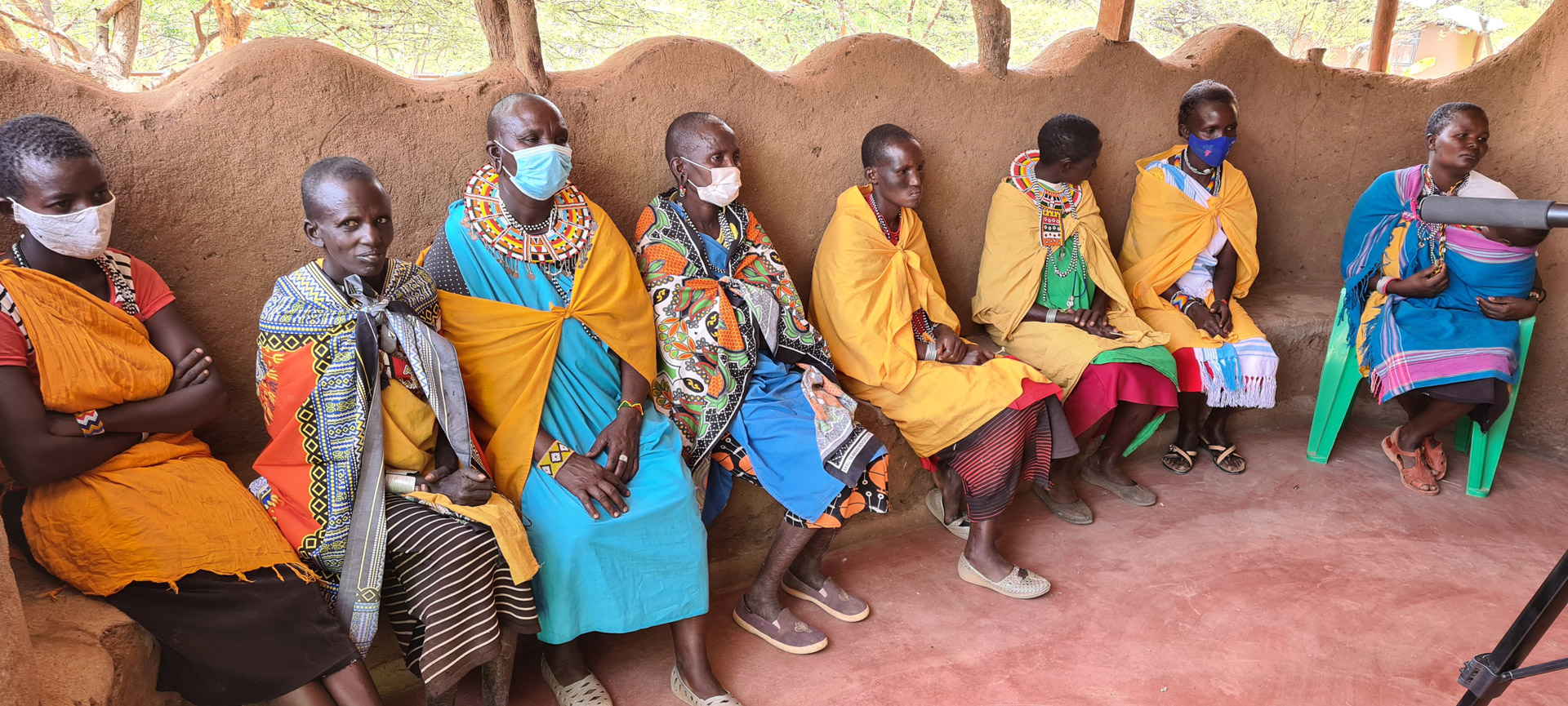How climate change affects pregnancy and early childhood in an indigenous Kenyan village
Bare pastures, sick livestock, less breast milk make life more precarious for mothers and infants
Bare pastures, sick livestock, less breast milk make life more precarious for mothers and infants
 Photo: Courtesy of IMPACT Kenya
Photo: Courtesy of IMPACT Kenya
Maasai communities in Laikipia county in northern Kenya have historically given new mothers a kind of maternity leave – several months off household chores and tending livestock so that they can focus on the wellbeing of their newborn baby and their own recovery from giving birth. But this tradition is increasingly breaking down – just one example of how indigenous mothers and infants are impacted by the changing climate.
To help us understand the effects of climate change, we asked our partner organisation IMPACT Kenya (Indigenous Movement for Peace Advancement and Conflict) to interview 15 women from Naatum Women’s Group in Laikipia. The women explained how changing weather patterns have made life a great deal more precarious, affecting their health and wellbeing, and that of their young children, in significant and surprising ways.
‘Climate change poses particular risks to indigenous women around the world.’
The Maasai measure their wealth in cows, goats and sheep, and their diet consists almost exclusively of raw meat, raw milk and fresh animal blood. Climate change is making this diet and economy less sustainable. Drought has resulted in pastures becoming increasingly scarce, scattered and unpredictable. Animals have become weaker because they have to walk further in search of food. Some become ill or die due to heat stress.
Traditionally, nursing mothers were given first access to fresh animal blood, to ensure that they were sufficiently nourished. Nursing women also rely on traditional medicines and herbs, which have become scarce or extinct due to climatic changes. All this is making recovery from pregnancy, and the important early weeks and months of a newborn’s life, more precarious.
As one interviewee said:
“In the early days, people lived far apart and the available resources were enough. Now we are so many and we continue straining the environment. The pasture is not enough, contributing to land and environment degradation due to overgrazing. Drought has contributed to death of livestock leaving many households stricken by poverty and despair.”
According to the interviewees, scarcity of resources means that women in the village now have to undertake heavy household chores until the last trimester of their pregnancy. Food insecurity puts them at high risk of nutritional deficiencies, given their increased nutritional needs during pregnancy and nursing. The lack of clean water within easy walking distance, and increased prevalence of water-borne diseases, are leading to more diarrhoea and other health conditions in infants.
Pre-term births and low birthweight are now common in Laikipia, the interviewees said. Poor nutrition means mothers no longer have sufficient breast milk, and the little milk from cows is sold or exchanged in the market instead of being given to young children, exposing them to malnutrition. As new mothers are increasingly called upon to supplement their family income, they have less time to attend to their young children.
The mothers in Laikipia are far from alone. However, while the United Nations Permanent Forum on Indigenous Issues (UNPFII) has identified climate change as posing particular risks to indigenous women around the world with regard to the rights to life, food, water and health, to date there has been less attention to the connection between climate justice and mothers, infants and toddlers.
At Global Greengrants Fund, our understanding of this connection between gender and climate change has been evolving over the last decade, through our partnership with the Global Alliance for Green and Gender Action. Through them, we have come to see how indigenous women around the globe are at the forefront of addressing the impact of climate change and environmental degradation, and how they must design, implement and scale-up their own solutions.
Indigenous women and girls are leaders in environmental adaptation, in part because socially defined gender roles often position them as stewards of the physical, economic, and cultural wellbeing of their communities. And since they are seen as being responsible for fetching water and managing land-based natural resources, they are disproportionately impacted by degradation of the environment that damages those resources.
Their leadership is key to protecting these resources. Global Greengrants Fund supports grassroots and indigenous communities in their response to the climate emergency. We have, for example, funded the women of Naatum Women’s Group to build resilient households that can help to adapt to climate change, through improved management of natural resources and by finding alternative ways for women to support themselves. The group has started collective income-generating activities including beekeeping, savings and lending associations, kitchen gardens for nutrition, and bead making.
These are low-carbon, environmentally friendly ways to increase economic opportunities and food security and to support new mothers and young children in the crucial first years. But the long-term developmental impacts on young children among these indigenous communities, and around the world, are worrying. Aligning the climate and childhood agendas, understanding their interconnections and strengthening the case for each has to be a priority.
As a grantmaker, it is critical that we take an intersectional approach that incorporates gender, age, disability or indigeneity. When we can better understand the links between different phases of life and climate change, we can respond more holistically to the challenges faced by indigenous women, their children and their communities.
See how we use your personal data by reading our privacy statement.
This information is for research purposes and will not be added to our mailing list or used to send you unsolicited mail unless you opt-in.
See how we use your personal data by reading our privacy statement.